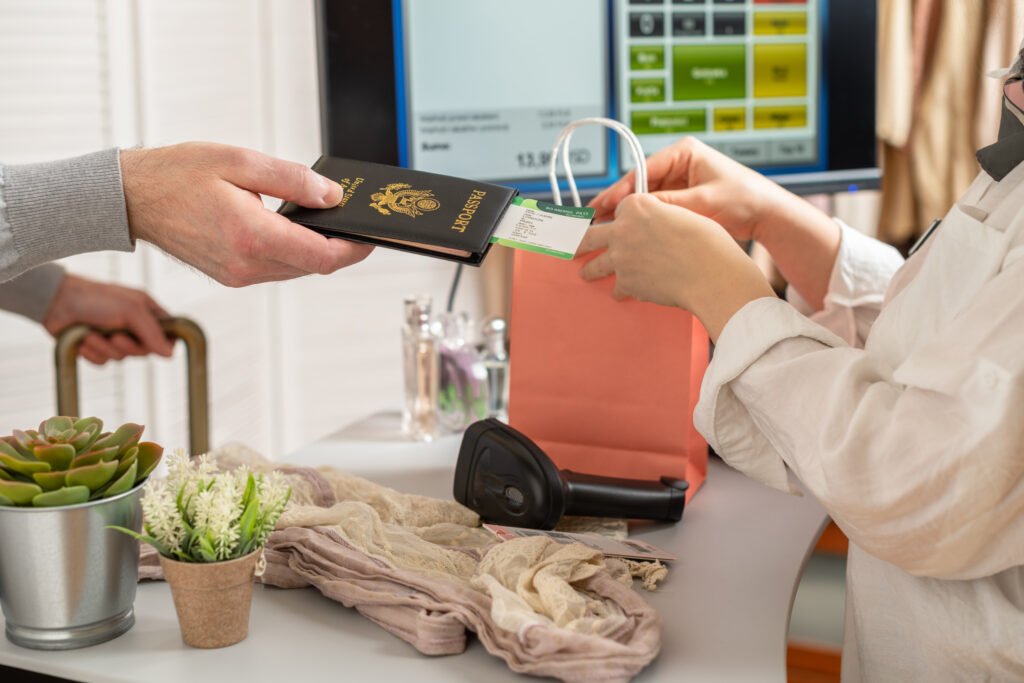These days, the post-security departure areas of most big international airports look more like shopping malls than transit hubs. Often, you can’t avoid a long trek past a meandering duty-free shopping area before you get to your departure gate. While duty-free shops advertise their items as deals, the truth is that many aren’t. For travelers tempted to make a purchase, there are seven things you need to know about duty-free shopping.

What “Duty-Free” Really Means
When shopping duty-free abroad, the “duty,” or, more accurately, “tax,” that you avoid is the tax that’s in effect where the airport is located. You’re not avoiding a U.S. import duty, which is very low on most items, anyways. The main tax is usually a value-added tax (VAT), although a local import tax could be involved, depending on the location. When duty-free shopping in the U.S., the taxes you avoid are the state and local sales taxes, and/or the federal excise tax that apply to some products.
Duty-Free Items Aren’t Necessarily Cheaper
Airport duty-free shops do not price items by simply dropping the tax; they price so as to be reasonably competitive in their local area. But the shops have to bear the usual retail overhead and also pay a stiff royalty to the airport, so the markups are still high.
Choose Your Duty-Free Purchases Strategically
When you’re returning to the U.S. after a foreign trip, the best buys are generally confined to items that are subject either to a stiff U.S. excise tax or to tight manufacturers’ price controls. That means liquor, tobacco, cosmetics, and fragrances typically offer the best deal.
Duty-Free Electronics Can Be More Expensive
Although they’re often available when duty-free shopping, cameras, watches, and other electronics are almost always cheaper online via sites like Amazon, Best Buy, Costco, or Walmart, than at any duty-free shop.
You Can Shop Duty-Free On Arrival
Some countries allow arriving international travelers to use duty-free shops before leaving the airport, but the U.S. does not. Returning U.S. travelers can buy duty-free only at foreign departure airports.
Liquor is the Most Popular Duty-Free Purchase
Liquor is probably the most popular duty-free buy for U.S. travelers. TSA rules allow travelers to bring liter bottles into the country as an added carry-on even on connecting domestic flights, as long as they’re packed in tamper-evident bags—which the duty-free stores provide with your purchase.
There Are Limits on Duty-Free Purchases
Returning U.S. citizens are allowed one liter of duty-free alcohol and a maximum of either 200 cigarettes or 100 cigars from most foreign countries. Some states impose tighter restrictions on import of liquor and tobacco than the federal restrictions. Conversely, “states may allow you to bring back more than one liter, but you will have to pay any applicable Customs duty and IRT,” according to U.S. Customs and Border Protection.
Book Your Stay With SmarterTravel Hotels
No matter where you’re traveling, find your hotel for a great rate with SmarterTravel Hotels.
Consumer advocate Ed Perkins has been writing about travel for more than three decades. The founding editor of the Consumer Reports Travel Letter, he continues to inform travelers and fight consumer abuse every day at SmarterTravel. Some of the links featured in this story are affiliate links, and SmarterTravel may collect a commission (at no cost to you) if you shop through them.
You Might Also Like:
• 10 Ways to Get the Best Airplane Seat
• The Ultimate Checklist for Traveling Abroad
• 10 Things Not to Do at Airport Security
• U.S. Virgin Islands Passport Requirements: Do I Need a Passport to Go to the U.S. Virgin Islands?
• Airport Security Frequently Asked Questions
We hand-pick everything we recommend and select items through testing and reviews. Some products are sent to us free of charge with no incentive to offer a favorable review. We offer our unbiased opinions and do not accept compensation to review products. All items are in stock and prices are accurate at the time of publication. If you buy something through our links, we may earn a commission.
























































